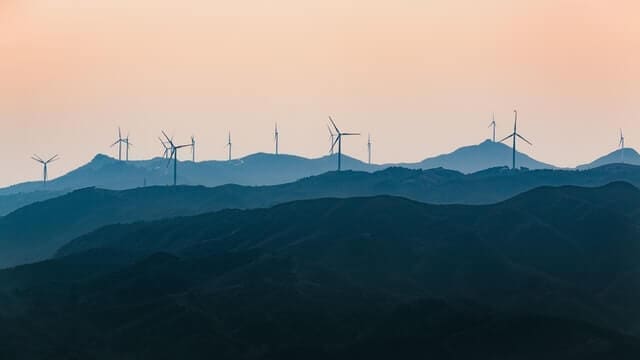A future strategy: The 2021 COP26 agreement on climate change saw countries commit to achieving global net zero by 2050, and to keep global temperatures no more than 1.5 degrees above pre-industrial levels.
With around two thirds of global greenhouse gas emissions linked to the burning of fossil fuels for energy, firms in the energy production sector are under pressure to move their operations away from fossil fuels and towards renewable energy sources to reach the global net-zero target by 2050. Repsol, a Spanish energy company and one of the largest public companies in the world, has ambitious plans to do exactly that.
In line with the climate action targets set out in the Paris agreement, Repsol aims to reduce its emissions to net zero by 2050. In the company’s 2021-2025 Strategic Plan, Repsol set out its commitment to becoming a multi-energy company, deriving much of its future energy from renewable energy projects and becoming a significant low-emissions electricity producer in the Iberian Peninsula.
To finance the expansion of its renewable energy offerings, Repsol committed to an €18.3 billion investment, of which 30%- €5.5 billion – was to be invested into low-carbon energy sources, such as wind and solar. In line with these goals, 40%of company spending in the first quarter of 2021 was allocated to low-carbon projects.
Leading the energy transition
In 2021, Repsol began work on its largest renewable energy project, the Delta II wind farm. Scheduled for completion in 2023, Delta II will generate a total of 860 Megawatts (MW) through 26 wind farms located in the Aragon region of north-east Spain. Once operational, Delta II will supply electricity to around 800,000 homes, preventing 2.6 million tonnes of CO2 being emitted.
In the first phase of production, Repsol began construction on the first two wind farms in the project: La Cometa I and La Cometa II, operating with four and 12 wind turbines respectively. Both in the province of Zaragoza, the first two wind farms will generate 60 MW, with work on the next three wind farms continuing.
Repsol’s first Delta wind project, also in the province of Aragon, is already operational. Costing €300 million, Delta wind’s eight wind farms and 89 wind turbines produce 992 Gigawatt hours (GWh) of clean energy every year. This is equivalent to the annual average consumption of 300,000 households and avoids around one million tonnes of CO2 being emitted every year.
In addition to substantially developing the company’s wind energy offerings, Repsol is also expanding its solar energy operations. In July 2020, construction began at Repsol’s largest photovoltaic (PV) farm in Spain, Valdesolar. Consisting of 648,000 solar modules spread over five large areas, this solar energy plant began generating enough renewable energy to power 140,000 homes in July 2021, avoiding the use of around 211,564 tonnes of CO2.
As well as Valdesolar, two more Repsol PV parks are under construction or fully operational. Kappa, in central Spain, generates 126.6 MW across three plants, while Sigma, in the province of Cadiz, has 204 MW of installed capacity and has been declared of strategic importance to the Andalucian government.
Finding the right suppliers
In transitioning into a multi-energy company, Repsol is significantly expanding its renewable energy operations. But rapidly scaling up these offerings means that Repsol needs experienced and forward-thinking suppliers to help it achieve its energy goals.
Showcase your sustainability and global net zero credentials and put yourself forward for tomorrow’s projects by joining Achilles.


